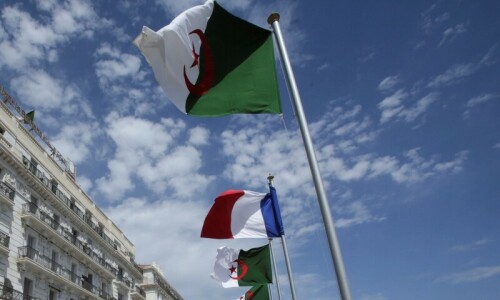QUETTA: Chief of the proscribed Baloch Liberation Front (BLF) Dr Allah Nazar Baloch has been killed in an operation by security forces, according to unverified reports, Balochistan Home Minister Safraz Bugti disclosed on Tuesday.
Addressing a press conference at Civil Secretariat Quetta, Bugti said, "According to unverified reports Dr Allah Nazar has been killed ... I say unverified because we have not yet received any evidence of his being alive ever since the Frontier Corps conducted a series of operations. There has been no human intelligence, no sign of life."
The separatist leader's killing has been rumored since July 18 this year, when security forces conducted an operation in Balochistan's Awaran district, however, the reports were denied by a BLF spokesman at the time.
Know more: Situationer: Who's who of Baloch insurgency
Bugti also announced that security forces destroyed a communication network of terrorists in an operation in Balochistan's Dalbandin region.
He said seven terrorists along with weapons were arrested during the operation.
"Security forces seized 600 mobile sims, 1000 antennae and ammunition from the communication center," Bugti said.
Bugti revealed that the suspected terrorists were using Indian, Afghan, Iranian and European sims to carry out subversive activities in the province.
He said the arrested terrorists were being interrogated by security agencies with regard to their involvement in terror acts in Balochistan.
Dr Allah Nazar Baloch had been leading the banned BLF in various parts of Balochistan targeting security forces, vital national installations and pro-government personalities for over a decade.
Nazar belonged to a middle-class family from Mashkay in the Awaran district. He is the only leader of the main insurgent groups who is engaged in fighting on the ground in Balochistan.
The BLF has previously claimed responsibility for the murder of 20 labourers in Turbat on April 11.
Read: 20 labourers gunned down in Turbat
The group's area of operations stretches largely across Awaran, Panjgur, Washuk, Turbat and Gwadar districts in southern Balochistan.
Following the earthquake in Awaran in late 2013, the Army has made considerable headway in accessing parts of the district that were hitherto ‘no-go areas’ due to risk of insurgent attacks.











































